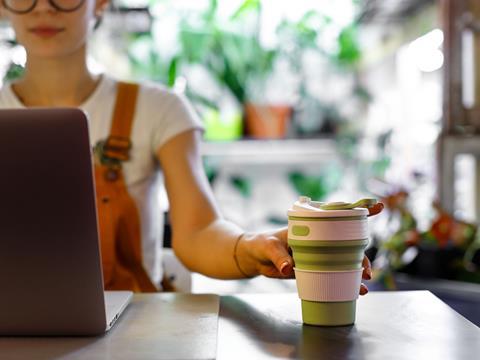
The environmental and commercial benefits of reusable packaging are clear, but it could be argued that, thus far, consumer uptake has not grown accordingly. What are the reasons for this, and how can the industry look to overcome these impediments? We spoke with Gavin Ellis of Hubbub, an environmental charity, to find out more.
Can you introduce Hubbub to our readers, and break down its work with Starbucks on reusable packaging?
Hubbub is an award-winning charity that inspires ways of living that are good for the environment. We design trailblazing campaigns that make environmental action desirable; disrupting the status quo to raise awareness, nudge behaviours and shape systems. Since 2014 Hubbub has built collaborations with over 1,600 organisations, from international businesses to local authorities and community groups.
We’ve been partnering with Starbucks since 2018 when they introduced the 5p charge on paper cups across all UK stores. As a result of the introduction of the cup charge, the take-up of reusable cups in Starbucks outlets has more than doubled.
Hubbub is the recipient of the 5p donations, and the income generated through this charge has been used by Hubbub to invest in campaigns across the UK boosting reuse, creating new recycling infrastructure, tackling littering and promoting the circular economy.
This included a trial of reusable cups at Gatwick Airport and the Grab Your Cup campaign in Manchester which increased usage of reusables by 1.5% in just three months. Looking ahead we’ll be supporting Starbucks with their commitment to offering a reusable cup share programme across all 3,840 European, Middle East and Africa stores by 2025. Hubbub will be supporting the development and delivery of a UK trial later this year with similar tests being undertaken in Germany and France.
The enthusiasm for reuse solutions is clear, but some would argue that uptake doesn’t match this enthusiasm. Are there any logistical issues that are standing in the way of more widespread adoption?
We live in a culture of convenience and therefore any reuse system must be as convenient or more convenient than the single-use option if it is to become the default choice for most people. Reuse systems have proved to be more easily adopted in ‘closed loop’ environments such as large offices, campuses and festivals where it is easier to control what people use and to ensure it is returned. The real challenge is making this work in a more open high street environment.
Away from functionality, Hubbub conducted a survey in 2019 that looked into consumer sentiment towards reuse schemes and some of the impediments in the way of widespread uptake. Could you break these findings down for us?
The environmental impact of cups has been well documented over the past few years and most coffee major retailers now offer a significant discount for using a reusable cup, but still, the majority choose not to use them so clearly there are more powerful drivers than cost and the environment. Some of the barriers that exist for widespread take-up of reusable cups were highlighted through public polling Hubbub and Starbucks commissioned in 2019 which revealed that:
- 36% of people don’t use a reusable cup every time they buy a hot drink because they must remember them every time they go out
- Despite 69% of people owning a reusable cup, only 17% use them every time they buy a hot drink.
- 27% of people would be embarrassed to ask a store to put a hot drink in their own cup.
- Other factors are that people have no room to carry them (22%) and they don’t want to carry around a dirty cup (20%).
In light of these findings, how do you think the industry can work to overcome these sentiments?
The industry needs to test and trial new solutions to normalise reusable cup usage, to promote the discounts more to customers and to make it as simple as possible for the customer to make the sustainable choice.
Beyond consumer sentiment – how can the adoption of reuse systems be sped up?
By trialling new cup share schemes which encourage customers to borrow a reusable cup when they purchase their drink, potentially with a deposit attached to incentivise people to return them. This will overcome some of the barriers to greater reusable cup usage such as remembering to bring the cup and social awkwardness about asking for a drink in their own cup.













